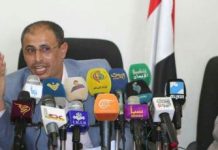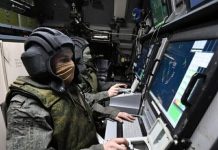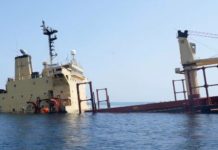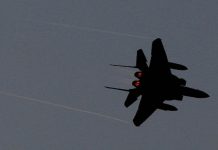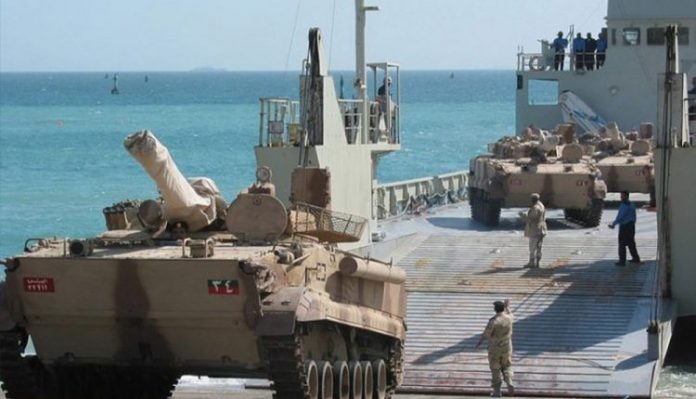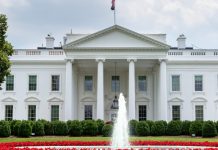The awkward camera angle is meant to hide the fact that the owner of the phone is filming, but there is no mistaking the outlines of the heavy cargo being deposited on the dock in the Yemeni port of Aden last week.
The distinctive shape of the US-made Oshkosh armored vehicle stands out in the early morning darkness, a piece of military hardware that is currently at the heart of a standoff between some American lawmakers and President Donald Trump’s administration.
Aden is controlled by the Saudi-led coalition in Yemen, whose main partners are continuing to ship American-made weapons into the country despite bipartisan outrage in Congress over the way the US is backing Riyadh in this bloody and bitter conflict.
In February, a CNN investigation revealed that Saudi Arabia and the UAE — key US allies — had transferred American-made weapons to al Qaeda-linked fighters, hardline Salafi militias, and other fighting factions in Yemen, in violation of their agreements with Washington.
Oshkosh Defense, the manufacturer of one of the armored vehicles (MRAPs) seen in the latest shipment, told CNN that the firm “strictly follows all US laws and regulations relating to export control.”
Last month, CNN revealed that US MRAPs had been distributed, in contravention of arms deals, to militia groups including the UAE-backed separatists. The separatists were using this equipment in the fight against government forces, who are also armed with US weapons.
Following the initial reporting the Pentagon said it had launched its own investigation, in conjunction with the State Department, into the unauthorized transfer of US weapons in Yemen, which a Pentagon spokesperson says remains “ongoing.”
US lawmakers, citing CNN’s investigations, have since moved to ban weapons sales to Riyadh and Abu Dhabi, passing the War Powers Resolution against a sitting President for the first time in a bid to end US military support for the Saudi-led coalition in Yemen, and also tried to sanction the Saudis for the alleged murder of journalist Jamal Khashoggi. The War Powers Resolution was approved by the House and Senate but was vetoed by Trump in April.
Trump again invoked his veto rights in late July to block a trio of Congressional resolutions banning $8.1 billion in weapons sales to various countries, including Saudi Arabia and the UAE. The President argued that maintaining the flow of weapons to the two US allies was necessary, citing national security issues and fears of Iranian aggression.
The 2014 deal signed by the UAE with the US was worth $2.5 billion and required the delivery of 4,500 MRAPs.
Under the UAE and Saudi Arabia’s arms sales agreements with the US, American-made MRAPs are considered “proprietary technology,” which neither party was supposed to let out of its control.
Recipients of US weaponry are also legally obligated to adhere to end-use requirements which prohibit the transferring of any equipment to third parties without prior authorization from the US government. That authorization was never obtained.



